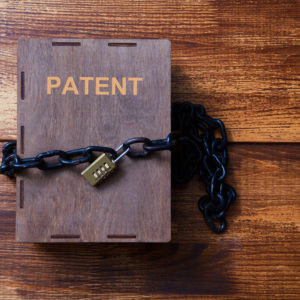It has become fashionable to minimize the harm caused by “patent trolls” and even to question whether they exist at all.
This is part of a larger campaign to normalize patent abuse by recasting trolling as the type of legitimate enforcement of property rights that is essential to a “strong” patent system.
Director Andrei Iancu of the U.S. Patent and Trademark Office has not only dismissed concerns about patent abuses as “scary monster stories,” but has sought to eradicate the term “patent trolls” itself from public discourse.
This revisionist effort suffered a major setback recently when it came to light that one of the world’s most notorious patent trolls — Fortress Investment Group — had sued a medical diagnostic company — BioFire — that was developing a COVID-19 test.
Worse, Fortress sought an injunction that would block sales of the device that performs the test. For obvious reasons, the pandemic response would benefit enormously from tests performed on site that provide results in minutes rather than days.
Fortress now claims that it didn’t know BioFire was launching a COVID-19 test and never intended to profit from the pandemic. But the timeline speaks for itself.
On Feb. 24, the Trump administration requested billions of dollars for its coronavirus response, stating that the funding was needed in part to support testing.
On March 3, the Wall Street Journal reported BioFire was developing a COVID-19 test.
On March 6, Fortress created a shell company — Labrador Diagnostics — that appears to have no business purpose other than being a plaintiff in an infringement suit. A mere three days after its creation Labrador fulfilled this purpose by filing suit against BioFire.
Fortress can claim ignorance all it wants, but it clearly knew that BioFire’s FilmArray platform was already used to test for every other major coronavirus, including SARS and MERS. Fortress’s patent infringement complaint specifically cited the respiratory panel that includes these other coronavirus tests.
Now, some have rushed to defend Fortress, inaccurately claiming that the lawsuit has nothing to do with coronavirus testing or profiteering. These apologists attempt to recast Fortress’s abuses as legitimate efforts to vindicate constitutionally protected rights, but the facts suggest the opposite.
For starters, there are serious questions about whether there are any valid rights to vindicate. The patents here were originally issued to Elizabeth Holmes, founder of the disgraced startup Theranos.
Holmes persuaded the USPTO to grant her several patents and then used them as validation of fraudulent claims that persuaded investors to give her more than $700 million for fake technology. She was eventually indicted on 11 counts of conspiracy and wire fraud.
Further, there are credible claims that Fortress-related entities regularly engage in abusive litigation having nothing to do with vindicating rights.
As detailed in a pending lawsuit brought by Apple and Intel, it employs a variety of questionable litigation tactics, files suits with little regard to the merits, and has repeatedly mounted serial litigation campaigns, filing dozens of weak lawsuits against a single company imposing tens of millions of dollars in prospective litigation costs.
Fortress claims it brings meritorious cases, but — despite accounting for about 1 in every 20 patent suits in the United States — it does not appear that it has prevailed on the merits in even a single case in recent years.
So, if vindicating rights isn’t the goal, what is?
Based on its perfect no-win record against Apple and Intel, it appears that the objective is not to prove its case but merely to extort settlements using the threat of litigation costs or some other harm (like interfering with the response to a global pandemic).
Happily, in this instance, Fortress was forced to backed down in the face of public outrage over the threat to COVID-19 testing, claiming this was all a big misunderstanding and that it would offer a royalty-free license.
So, in this case, hurling the term “patent troll” at a bad actor seems to have done some good. But we can’t rely on public shaming as our only defense.
Instead of seeking to eradicate the term “patent trolls,” the public would be better served if Director Iancu and his allies focused on eradicating abusive trolling behavior itself and preventing the issuance of problematic patents that feed it. Unfortunately, the recent trend at the USPTO has been in the opposite direction.
Patent quality initiatives seem to have been all but abandoned, and the USPTO has repeatedly weakened inter partes review — the process created by Congress to review invalid patents and prevent the legalized extortion they enable.
This trend must be reversed. Patent trolls like Fortress continue to thrive, while doing genuine harm. So, don’t believe those who seek to minimize this behavior as being “scary monster stories” designed to fool politicians.
What they’re not telling you is that sometimes monsters — and the danger they pose — are all too real.

